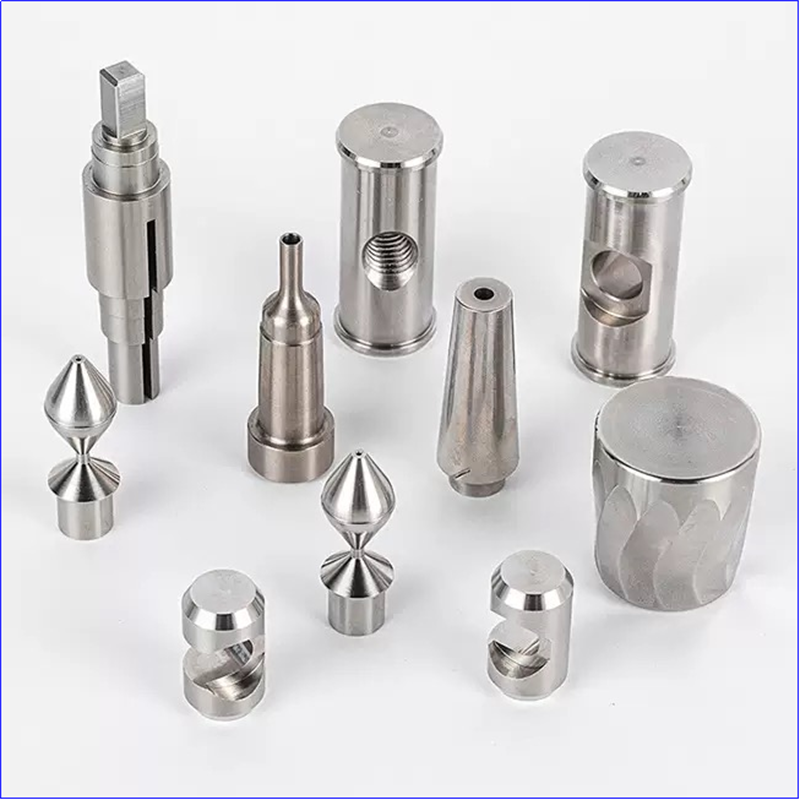The Advantage of Machined Parts
2025-08-13
Machined parts range from complex gears fashioned from blocks of metal to intricate instrument parts formed from plastic rods. This process requires extreme precision and skill and is a critical component of modern production. Modern manufacturing relies heavily on machined parts, meticulously crafted using a variety of techniques such as CNC milling, turning, drilling, and grinding. These techniques precisely remove material, transforming raw materials into functional components.
Let's explore the role and advantages of machined parts in the manufacturing industry.
What are machined parts?
Machined metal parts range from simple designs to complex geometries, depending on the specific application and industry requirements. Machined parts are produced through machining, which involves removing material from a workpiece to create the desired shape and dimensions. This subtractive manufacturing method ensures high precision and accuracy in the final product.

Reliability and Consistency
Machined parts are manufactured using cutting-edge machinery and are subject to stringent quality control measures throughout the manufacturing process. As a result, they exhibit consistent dimensions, a smooth surface finish, and uniformity, making them easy to integrate into larger systems or assemblies. The reliability of precision-machined parts contributes to the overall performance and lifespan of the final product.
The Importance of Precision Machined Parts
Precision machined parts are essential in modern manufacturing, ensuring precision, reliability, and performance. Carefully engineered to meet stringent tolerances and design specifications, they offer numerous advantages and applications.
Customization and Versatility
Precision-machined parts are highly customizable to meet specific application needs, allowing manufacturers to tailor the design, material selection, and manufacturing process to achieve desired properties such as strength, durability, heat resistance, or conductivity. This versatility enables precision-machined parts to meet the needs of a wide range of industries, from complex micro-components in electronics to critical structural elements in aerospace.
Exceptional Precision and Accuracy
Precision-machined parts are designed to extremely tight tolerances, ensuring that every dimension and feature is precisely controlled. This level of precision is crucial in industries such as aerospace, medical device, electronics, and automotive, where even the slightest deviation can lead to performance issues or safety hazards. By employing cutting-edge technologies such as advanced machining techniques and CNC machining, precision part manufacturers can achieve consistent, repeatable results with exceptional precision.
Safety and Regulatory Compliance
Precision-machined parts ensure compliance with stringent regulatory standards in safety-critical industries such as aerospace and medical device. These parts undergo rigorous quality control and inspection to meet industry-specific certification and safety requirements. Precision machining technology enables manufacturers to produce components that meet the stringent specifications of regulatory agencies, ensuring the highest levels of protection and reliability in end products. Technological Advances: As technology advances, the demand for increasingly complex, miniaturized, and high-performance components continues to grow. Advances in precision machining techniques, materials, and design enable the production of cutting-edge components, driving advancements in aerospace, electronics, medical research, renewable energy, and more.
Enhancing Functionality and Performance
Precision-machined parts are designed and manufactured to provide optimal functionality and performance in their intended applications. Whether it's a high-speed rotating component, a complex electronic connector, or a critical medical device component, precision machining technology enables complex geometries, fine details, and tight fits. These parts are meticulously designed to provide precise motion, efficient energy transfer, and reliable functionality, thereby enhancing the overall performance of the systems in which they are integrated.
Machined parts are a vital component of the manufacturing industry and play a crucial role in a wide range of sectors. Whether in automotive, aerospace, electronics, or healthcare, machined parts are essential to the smooth operation of complex systems.



